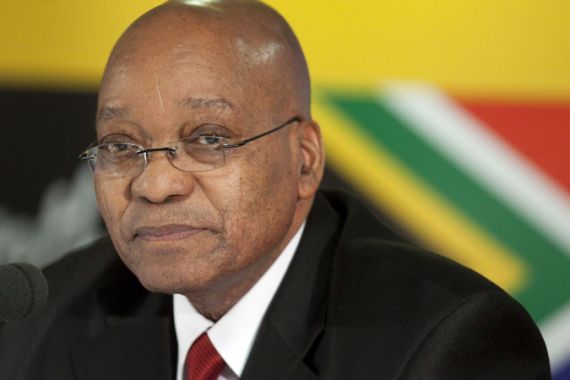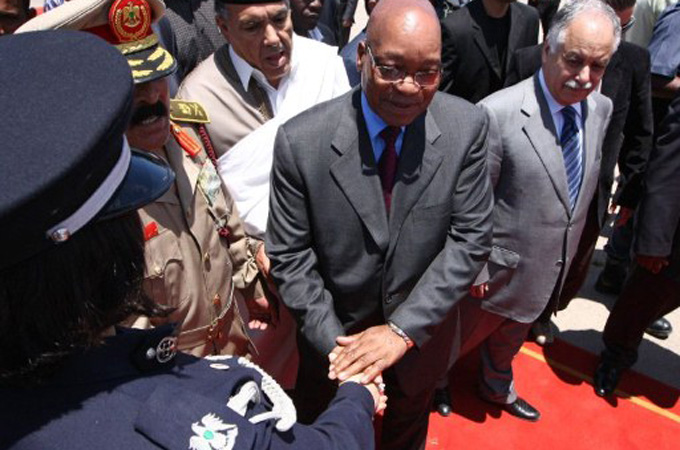Zuma heading to Russia for Libya talks
South African president to hold talks with Russian counterpart in bid to resolve conflict raging for nearly five months.

 |
|
Zuma belongs to the African Union team tasked with finding a solution to the conflict in Libya [AFP] |
Jacob Zuma, the South African president, will be visiting Russia for talks on Libya, his spokesperson says.
The visit follows an African Union (AU) summit in Equatorial Guinea, which sought to push a regional peace plan to end the conflict in the north African nation.
“He is leaving today, and the meeting is scheduled for tomorrow [Monday],” Zanele Mngadi told the AFP news agency on Sunday.
Zuma belongs to the African Union team tasked with finding a solution to the conflict.
The Kremlin said in a statement late on Saturday that Zuma and Dmitry Medvedev, the Russian president, held a telephone conversation in which they agreed on a “personal meeting in the closest time” but gave no details on when it would take place.
“The heads of state agreed on a personal meeting in the closest time to agree and co-ordinate the ensuing steps for a solution to the internal Libyan conflict,” it said.
Moscow’s anger
Like South Africa, Russia has also sought to play a mediating role in the Libyan conflict that has been raging for nearly five months.
Medvedev has said it is time for Muammar Gadaffi, the Libyan leader, to step aside but Russia has also expressed mounting anger with the intensity and duration of the NATO air strikes against loyalist targets.
At its summit in Equatorial Guinea, the AU adopted a plan for negotiations between the warring Libyan parties.
“We are very happy that we have reached this point, that we can now say very soon we will be launching the talks in Addis Ababa and we believe we will get the necessary support from everyone,” Zuma said late on Friday after the summit.
But the accord reached at the summit did little to bring forward earlier AU proposals, which have been rejected by the rebels who insist that Gaddafi must go.
The AU’s road map proposes provisions for a multinational peacekeeping force organised by the United Nations.
The AU also says that Gaddafi has agreed to stay out of the negotiations, but the 53-nation bloc was unable to take a position on his future, which is a key sticking point between the two sides.
The agreement contained no direct criticism of Gaddafi and even called for an amnesty for crimes during the conflict and the unfreezing of Libyan assets abroad.
The International Criminal Court (ICC) last week issued an arrest warrant for Gaddaffi, his son and his spy chief, citing evidence of crimes against humanity committed against political opponents.
But the AU said its members would not execute the warrant against Gaddafi.